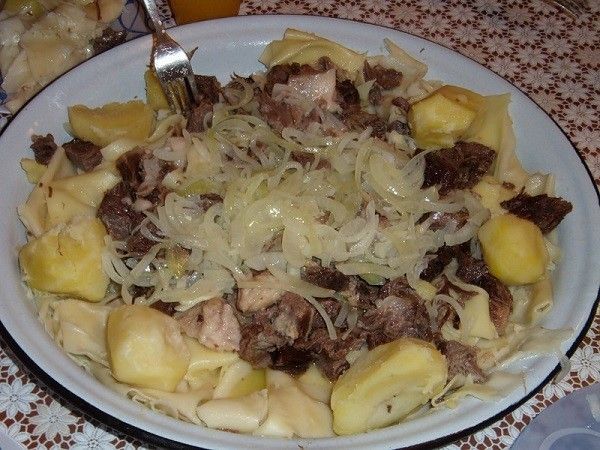
The countries in Europe where most people die because they eat too much salt and not enough vegetables have been named and shame, reports Tashkent Times. Unhealthy eating is deadliest in Uzbekistan, while Spain and Israel are at the bottom of the table.
Britain ranks 42nd, with 62 diet-related heart disease deaths per 100,000 people, according to the analysis of 51 nations.
Researchers analysed how many heart disease deaths could be attributed to a diet high in salt but low in vegetables, nuts and whole grains.
They estimate nearly half of the 4.3million deaths from the disease recorded across the continent in 2016 could be blamed on poor eating habits.
Figures from the Global Burden of Disease Study showed 2.1million people in the region died because of heart disease caused by what they eat.
And in the worst-affected countries, nine times more people are dying because of their food than in countries which are least affected.
Western European nations manage to stay clear of the top half of the table, which is made up primarily of Asian and Eastern European countries.
Germany is the worst performing in Western Europe and the only one in the region to have more than 100,000 people die in 2016 because of their diet.
'We must make better use of the potential of a balanced and healthy diet, otherwise [heart] diseases will be the cause of even more preventable deaths in the future,' said study author Professor Stefan Lorkowski.
Professor Lorkowski, from Friedrich Schiller University Jena in Germany, said the figures are 'crucially relevant'.
The findings, using data from between 1990 and 2016, reveal people have different dietary problems in different countries.
In Sweden and Norway, for example, not eating enough nuts and seeds is the habit most associated with heart disease, according to the scientists.
Whereas in much of central and eastern Europe, as well as the central Asian countries involved in the region, a lack of whole grains is most concerning.
'To put it another way: increased consumption of low-fibre white flour products has led to an increase in [heart] disease in recent years,' Professor Lorkowski added.
The research also looked at how people's diet affects other risk factors for heart disease, including obesity, high blood pressure and lack of exercise, but didn't include alcohol consumption.
The other countries in the top 10 are Turkmenistan, Kyrgyzstan, Ukraine, Moldova, Azerbeijan, Belarus, Tajikistan and Kazakhstan.
While the eight making up the rest of the bottom 10 are Israel, France, Netherlands, Andorra, Denmark, Belgium, Switzerland, Norway and Italy.
Researchers also revealed men's diets are more damaging to their health than women's.
Women's diets only began to seriously damage their health beyond the age of 50, while men were affected when they were younger.
The study used the World Health Organization's definition of the European region, which includes Russia and various countries in Central Asia.
The findings come after a major study this morning warned millions of people are at risk of an early death because they do not eat enough fibre.
A review commissioned by the WHO found that people who get plenty of fibre in their diet cut their risk of early mortality by up to a third.
They also cut their risk of a heart attack, stroke, type two diabetes or bowel cancer by up to a quarter.
Yet the vast majority of adults in Britain – around 91 per cent – eat less than the recommended daily amount. Similar figures exist in the US.
The findings are a blow for trendy low-carb diets, which have boomed in popularity in recent years and have also driven down fibre intake.
Source: Taskent Times
 В Атырау -10
В Атырау -10